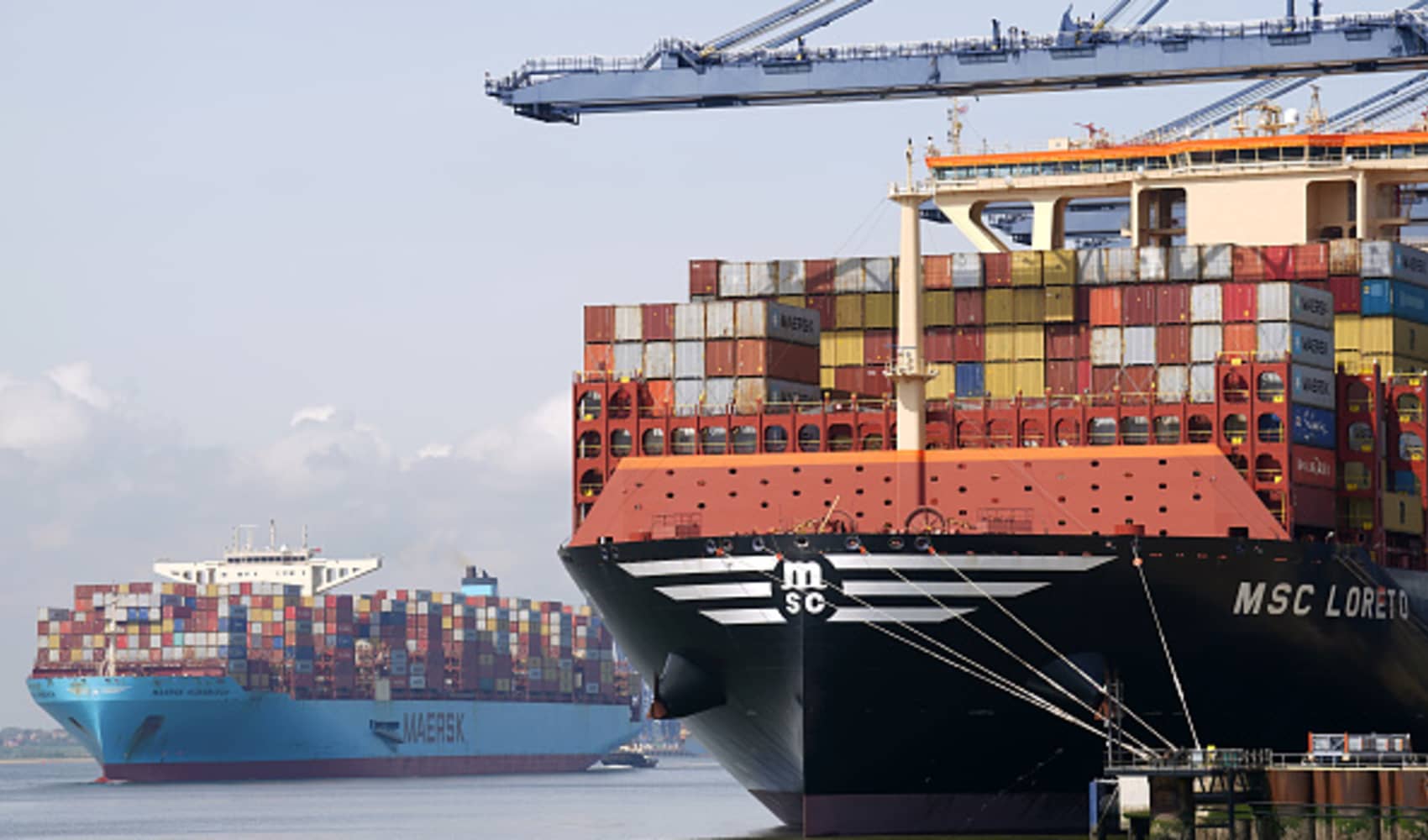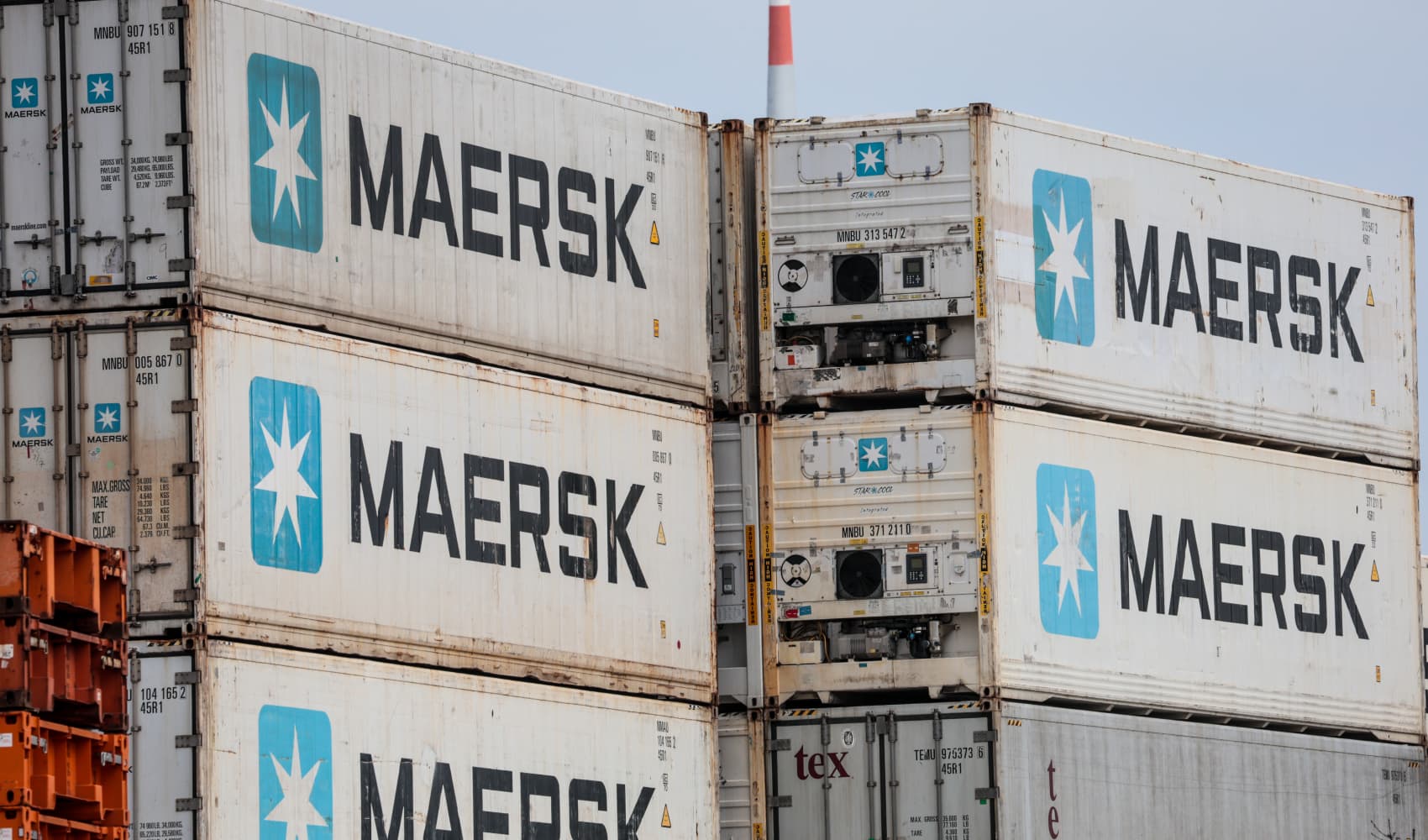5 European Stocks to Watch as Trump's Tariffs Bite
Navigating Trump's Tariffs: 5 European Stocks to Watch This Earnings Season
Introduction: A Storm Brewing Over European Markets
Alright, buckle up, investors! 2025 is off to a rocky start, and we're heading straight into earnings season with a massive question mark hanging over us. What's the culprit? None other than President Donald Trump and his newly announced tariffs. The sheer scale and unpredictability of these tariffs, along with the market's yo-yo response to policy updates, are enough to give even the most seasoned investor a serious case of the jitters. We’re not talking about a drizzle here; we're talking about a downpour that could significantly impact European companies and their earnings reports.
The Tariff Tsunami: How Big is the Wave?
The scale of President Donald Trump’s tariffs, along with the volatility injected by subsequent updates and reversals in policy, have so far exceeded even the most bearish forecasts. The duties announced in April, along with threats of more to come, are causing ripples throughout the global economy.
Expert Opinions: What Are the Analysts Saying?
Emily Field, head of European pharmaceuticals research at Barclays, told CNBC earlier this month that tariffs were the “No. 1 question on investors’ minds.” And honestly, can you blame them? These tariffs aren’t just abstract numbers; they're potential profit killers. They impact supply chains, production costs, and ultimately, the bottom line for many European companies.
European Heavyweights Under Scrutiny
Danish shipping giant Maersk, British oil giant Shell, and Germany’s Volkswagen are among the European stocks investors will be watching closely this earnings season. But why these specific companies? Let’s dive deeper.
Maersk: Navigating Choppy Waters
The Shipping Giant's Exposure
Maersk, as a global shipping behemoth, is incredibly sensitive to trade policies. Tariffs directly impact shipping volumes and freight rates. Think of them as the veins and arteries of global trade; if trade gets blocked, Maersk feels the pain. An increase in tariffs means less goods being shipped, translating directly to lower revenue and potentially lower profits for Maersk.
What to Watch For in the Earnings Report
Keep a close eye on Maersk's guidance for the rest of the year. Are they expecting a slowdown in shipping volumes? How are they adjusting their prices to compensate for the tariffs? Pay close attention to their comments on China, as this is a key region impacted by US tariffs. Also, look for mentions of how they are attempting to diversify their routes and markets to mitigate the risks.
Shell: Fueling Uncertainty
Oil Giant's Vulnerability
Shell, while not directly affected by specific product tariffs, faces indirect pressure. A global economic slowdown triggered by trade wars can reduce demand for oil and gas, impacting Shell's revenue. Imagine a car engine sputtering; it needs less fuel, right? The same goes for the global economy. If the economic engine slows down due to tariffs, the demand for oil decreases, and Shell’s profits could take a hit.
Key Indicators in the Earnings Report
Look for details on Shell’s capital expenditure plans. Are they scaling back investments in new projects due to economic uncertainty? Also, pay attention to any comments on the overall demand outlook for oil, particularly in Asia. Any mention of "demand destruction" or "slowing growth" should raise a red flag.
Volkswagen: Driving Into a Tariff Headwind
Automotive Industry Impact
Volkswagen, a major automotive manufacturer, is exposed to both direct and indirect effects of tariffs. Tariffs on imported car parts can increase production costs. Plus, tariffs on finished vehicles sold in the US can reduce sales. Volkswagen is like a runner facing a strong headwind; it's going to take more effort and resources to reach the finish line.
Analyzing the Earnings Data
Focus on Volkswagen’s sales figures in the US market. Have they seen a decline since the tariffs were implemented? Also, look for details on their plans to shift production to avoid tariffs or absorb the increased costs. Information on their electric vehicle strategy is also relevant, as EVs are potentially less impacted by tariffs due to different supply chains.
The Other Two Stocks: Hidden Gems or Potential Duds?
Company X: A Deep Dive
[Insert Placeholder for Company X] Now, let's talk about [Company X], a [Industry] company based in [Country]. This stock has been gaining traction lately, but how will it fare against the tariff headwinds? [Describe the company's business model and potential exposure to tariffs. Explain what to look for in their earnings report. Discuss the risks and opportunities associated with this stock.]
Company Y: A Detailed Analysis
[Insert Placeholder for Company Y] Next up is [Company Y], operating in the [Industry] sector and headquartered in [Country]. This company is [Describe Company Y's business] and might be affected by tariffs because [Explain the company's exposure]. In the upcoming earnings report, pay attention to [Specific data points]. This stock could be either a safe haven or a complete miss, depending on how they navigate the situation. [Discuss the risks and opportunities associated with this stock.]
Beyond the Big Three: Sector-Specific Vulnerabilities
While Maersk, Shell, and Volkswagen are major players, it’s essential to look beyond them. Certain sectors are particularly vulnerable. For instance, companies in the technology, aerospace, and agriculture industries could be hit hard by tariffs. The market's a complex tapestry; pulling on one thread (tariffs) can unravel the whole thing.
Currency Fluctuations: Another Wrinkle in the Mix
Don't forget about currency fluctuations! Tariffs can impact currency exchange rates, which in turn, can affect the profitability of European companies. A stronger euro, for example, can make European exports more expensive and less competitive.
The "Trump Bump" or the "Trump Slump"?
The million-dollar question: will the tariffs lead to a "Trump Bump" for some companies (e.g., those that benefit from import substitution) or a "Trump Slump" for others? It's a game of winners and losers, and investors need to be on the right side.
Hedging Strategies: Protecting Your Portfolio
Given the uncertainty, consider hedging your portfolio. This could involve diversifying into less tariff-sensitive sectors, investing in companies with strong domestic sales, or using options to protect against downside risk. Think of hedging as an umbrella in a rainstorm; it might not stop the rain entirely, but it will keep you from getting soaked.
Long-Term Perspective: Don't Panic Sell!
While short-term volatility is likely, try to maintain a long-term perspective. Tariffs are often temporary, and companies can adapt over time. Don't make rash decisions based on fear. Investing is a marathon, not a sprint.
The Importance of Due Diligence
Now more than ever, thorough research is crucial. Don't rely solely on headlines. Dig into the financials, read analyst reports, and understand the specific risks and opportunities facing each company. Investing without due diligence is like driving with your eyes closed; you’re bound to crash.
Earnings Season Strategies: A Checklist
Preparing for Earnings Reports
Before each earnings release, review the company's previous performance, read up on analyst expectations, and understand the potential impact of tariffs. This will help you make informed decisions.
Post-Earnings Analysis
After the earnings report is released, analyze the key metrics, listen to the earnings call, and assess the company's outlook for the rest of the year. Don't just focus on the headlines; dive into the details.
Alternative Investments: Diversifying Beyond Stocks
Consider diversifying your portfolio beyond stocks. Bonds, real estate, and commodities can provide a buffer against market volatility. Don't put all your eggs in one basket!
Conclusion: Navigating the Tariff Maze
President Trump's tariffs have created a complex and uncertain environment for European stocks. Maersk, Shell, Volkswagen, and other companies are facing headwinds that could impact their earnings. Investors need to be vigilant, do their homework, and consider hedging strategies to protect their portfolios. By staying informed and maintaining a long-term perspective, you can navigate this challenging period and potentially find opportunities amidst the chaos. Remember, even in a storm, there are always safe harbors.
Frequently Asked Questions
- How will these tariffs specifically impact the average European investor? Tariffs create market volatility, potentially impacting the value of your European stock holdings. It’s crucial to review your portfolio and understand the exposure of your investments to tariff-sensitive sectors.
- What are some alternative investment options to consider during this period of tariff uncertainty? Consider diversifying into bonds, real estate, or commodities. These assets can often act as a buffer against stock market volatility.
- How can I stay updated on the latest tariff developments and their potential impact on the market? Follow reputable financial news sources, read analyst reports, and monitor government announcements related to trade policy. Stay informed!
- Are there any specific European industries that are likely to benefit from these tariffs? Some companies that produce goods domestically might benefit from import substitution if tariffs make foreign goods more expensive. Research specific sectors to identify potential winners.
- What steps can I take to minimize the risks associated with investing in European stocks during this tariff period? Consider hedging your portfolio, diversifying into less tariff-sensitive sectors, and maintaining a long-term investment perspective. Don't panic sell!

